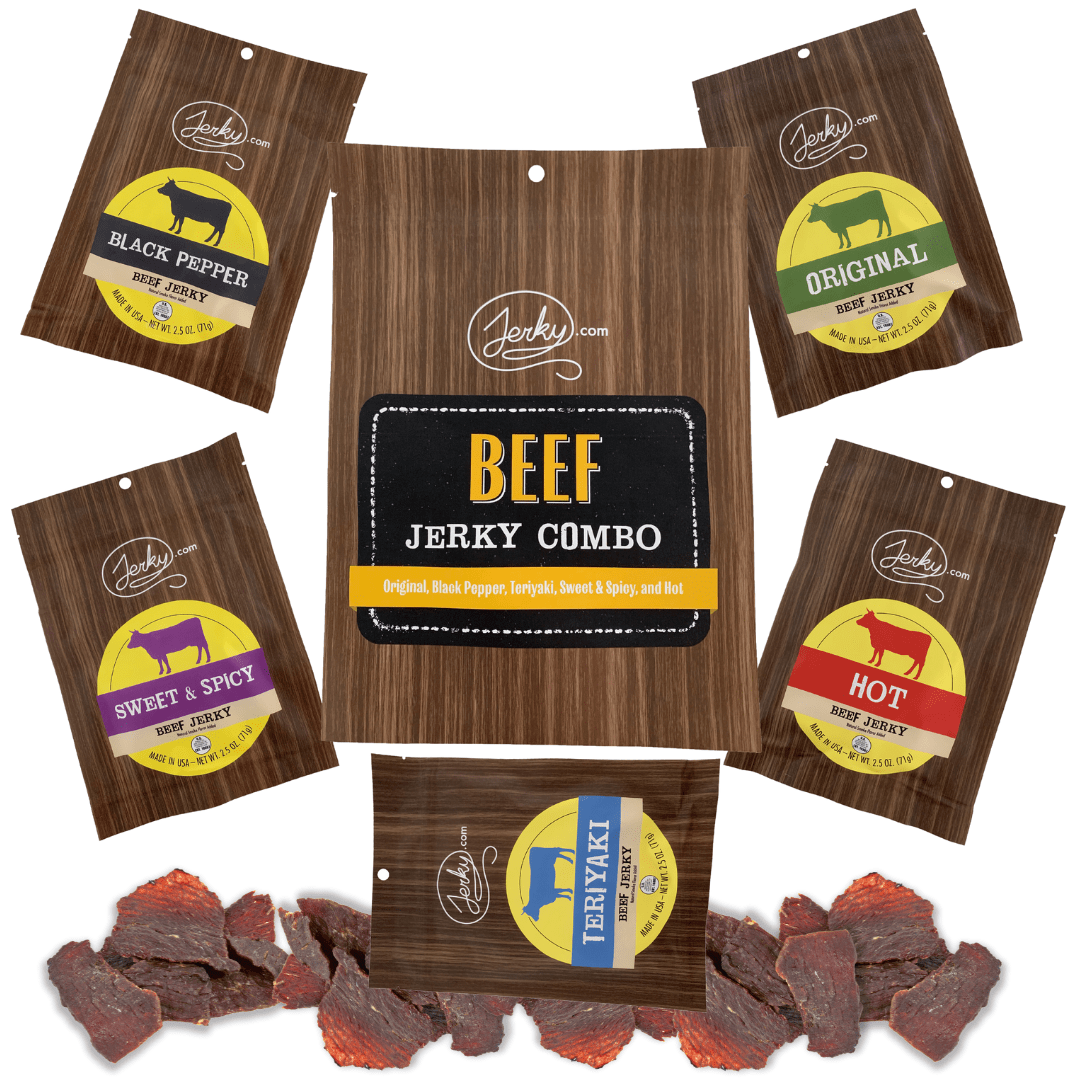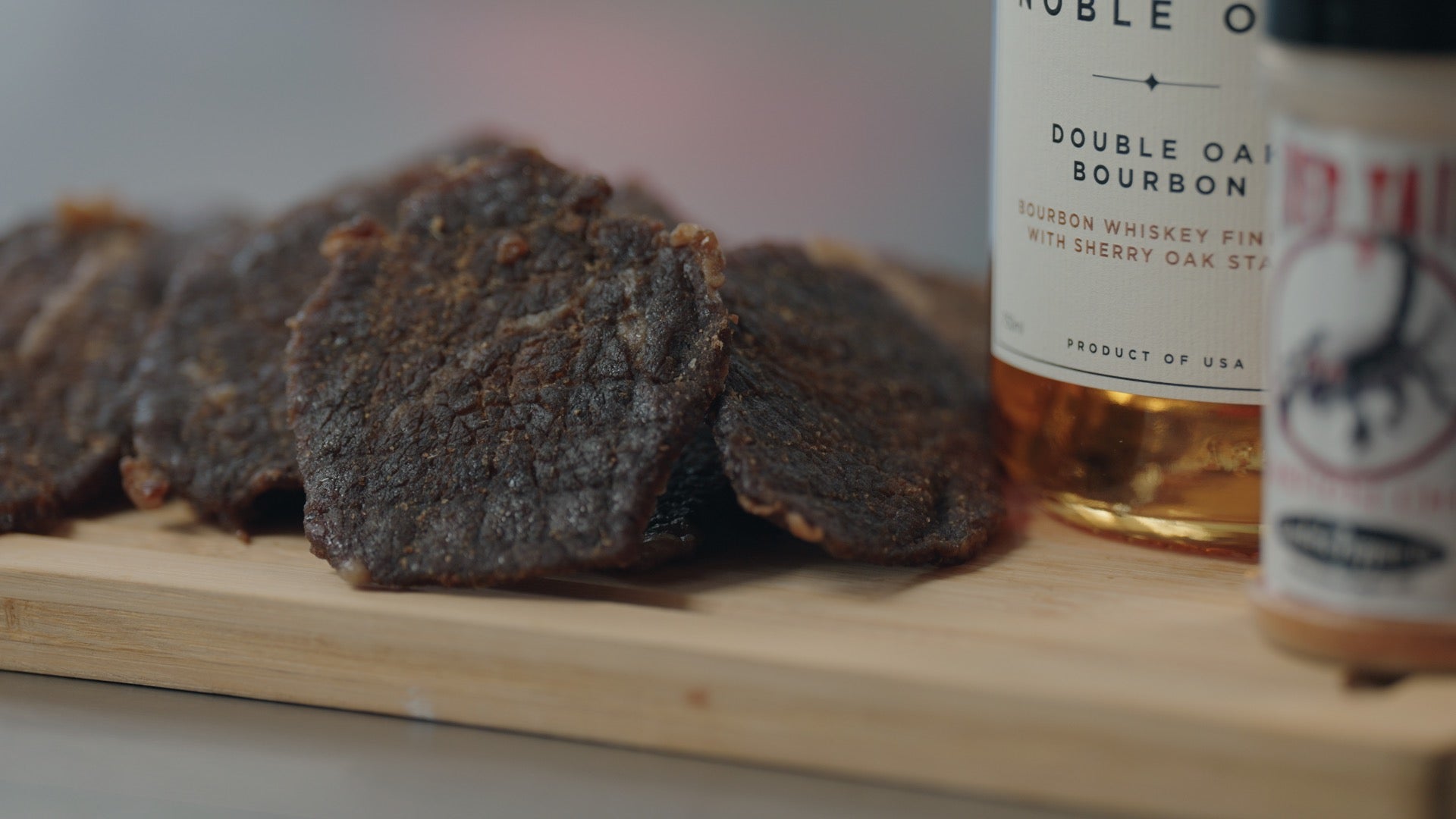Step 2 - Apply Jerky Seasoning and Marinate Meat
So you have your meat selected, trimmed up and cut consistently into the type of pieces you want to make your jerky with. Now is the fun part...giving the flavor to your meat that is going to give it the taste and personality that you want. This is your time to shine! There are several ways to add flavor to your meat, including: marinading, curing and seasonings. We are going to break them down for you here. **MARINADE** Marinating meat is basically soaking it in a liquid to absorb flavoring into your meat. Here is the basic process for marinating: For every pound of meat, use approximately a half of a cup of marinade. Take each piece of meat and dip it completely into marinade to coat it thoroughly and evenly. Then, place the meat into shallow glass dish and pour the remaining marinade over the top (no need in wasting even a drop!). Finally, cover your meat and refrigerate for anywhere between 8-36 hours. Tip: Use either ceramic or glass containers when marinating. Since marinades are often acidic they will usually react with the metal in some containers. The general rule of thumb for how long to marinate your meat is "the longer, the better." For best results, remember to flip the meat every few hours to ensure even coverage over all of the pieces of meat. When you are done marinating the meat, remove it from the liquid and use paper towels to pat them dry. Here is a basic marinade for you to try (this is for 2 lbs of the meat of your choice): - half of a cup of Worcestershire sauce - half of a cup of Soy Sauce - 3 Tablespoons of Catsup - 2 Tablespoons of Brown Sugar - half of a Teaspoon of Onion Powder - One and a half Teaspoon of Salt - 1 Clove of garlic, minced well - Pinch of Pepper **CURING** Curing is the a food preservation process that adds a combination of salts, sugars and nitrates. Once you add your cure to the meat you have to give it plenty of time to “cure” (usually about 12 hours). The main purpose of the cure is to protect against bad bacteria like botulism, which thrives in low cooking temps, no oxygen or warm meat. While curing is optional in the jerky making process, if your dehydration process includes drying or smoking the meat at temperatures lower than 165 degrees, you are going to need to cure it properly. **Tip: Curing wild meats will usually greatly reduce the "gamey" flavor the meat might tend to have.** **Tip: Prepare deer and rabbit as described for beef. Game birds should be treated like chicken.** If you are wondering where to get a cure mix for your next batch, don't worry. There are several kinds of products readily available at many grocery stores. The Morton brand makes a few different products: - Morton® Tender Quick® Mix (interchangeable in a recipe with Morton® Sugar Cure® Plain) - Morton® Sugar Cure® Plain (Interchangeable in a recipe with Morton® Tender Quick® Mix) - Morton® Sugar Cure® Smoke Flavored (used for dry curing bacon and ham) **SEASONING** The process of seasoning your meat involves using herbs and spices to make a dry powder to coat or sprinkle onto the surface of your meat before dehydrating. While you can combine the spices and marinade together and save yourself a step, we suggest you marinade the meat and pat it completely dry (on the surface) and then season it. The flavor of the seasonings will be much bolder this way. Here are some of the most common spices for you to start with: - Salt - Black Pepper - Soy Sauce - Worcestershire Sauce - Brown Sugar/Honey Here are some other spices to try: - Garlic Powder - Onion Powder - White Pepper - Chile Powder - Cayenne Powder - Fresh Chiles - Hot Sauce (my favorite) - Garam Masala (Indian spice, mostly ground coriander, cumin, and cardamom) - Cumin - Lemon Pepper - Sesame Oil - Sesame Seeds - Ground Ginger - Fresh Ginger - Green Onions - Fresh Onion - Dry Sherry - Bourbon Quite honestly, it is really pretty difficult to mess up the seasoning stage enough to make your jerky batch a bad on. But, if you are looking for simplifying or improving your recipe for next time, one rule of thumb is that if you can't taste the spice in your batch, you can probably get away with leaving it out of the recipe next time. If you are looking for a ready-to-use, right-out-of-the-box seasonings ready for you to start using, check out the Hi Mountain Jerky Seasoning Kits. There are many brands of seasoning kits available, but I have used these and I can personally vouch for them. Hi Mountain makes some pretty solid stuff...and their seasoning kits
come with some very detailed instructions that are pretty useful to anyone who wants to become a jerky making expert. It's worth getting at least one of these kits just for these instructions! Now that you know how to season your meat properly, you need to get stocked up on some seasonings and raw ingredients to start working on your secret sauce! Next up in our video series will include some tips and tricks to ensure that your secret flavoring gets infused into your meat for maximum flavor. Keep your eyes peeled!


